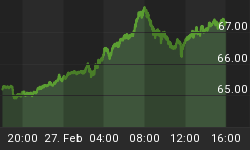At the end of 2020, the plant-based food market was valued at $29.4 billion globally, and it is projected to reach a value of $162 billion by 2030. But plant-based meat offerings such as Beyond Meat were just the banal beginning of the alternative food disruption: The next big push could be into the fringe area of “cultured meat”.
The drivers are as diverse as massive population growth, fears of global warming and a pandemic that’s made everyone think twice about health and wellness.
Earth’s population in 1971 was 3.7 billion people. Just 50 years later, it has more than doubled to a whopping 7.8 billion people. That means growing demand for protein … but not just any protein. Now, consumers are demanding sustainable protein.
With global warming as a looming concern, many are taking what steps they can in an effort to offset effects. With that comes a growing population of people who eat primarily plant-based foods. Everyone’s big concern is factory farming, and the sustainability (and ethicality) of the practice. It’s not necessarily a new concept, but is moving toward the mainstream where it would be highly disruptive to the food and agriculture industries.
Cultured Meat, as they call it, is a possible alternative to raising and slaughtering farm animals. It’s meant to remove the guilt and the environmental impact.
How?
Cultured meat is developed by extracting the muscle cells from animals and multiplying them in a lab to create our most desired cuts of meat.
Much research is being done in the area, and it’s forecasted that by 2030, cultured meat will be cheaper to produce than an equivalent amount of meat taken from an animal.
And it will be substantially better for the environment. It will emit 93% less greenhouse gases, and take 95% less land for nutrient production.
This could be an amazing opportunity for something new in the ever growing food industry. Whether it be in fast food, fine dining, commercial grocers, local grocers or anyone else in the supply chain; having a cheaper, more sustainable and more ethical meat that is actually still meat will be a major money maker, and saver.
Here’s an interesting fact to ponder: Currently, around 50% of the world’s habitable land is used for agriculture. Of that, 77% is used for livestock and dairy production. By replacing only half the meat and dairy we eat and drink globally with lab-grown alternatives, we would free up a land area about the size of North America.
If cultured meat turns out to be good enough--and the jury is still out on this--those percentages could be even higher.
This could be great news, considering the fact that 37% of the world's methane (CH4) emissions come from agriculture. That’s 15% of the world’s emissions in total, just from agriculture.
But that’s all if this manages to take off.
The space is quickly getting filled with new entrants, with the most newsworthy for now being Memphis Meats, based in Berkeley, California. Media has jumped on the fact that billionaires Bill Gates and Richard Branson have pumped money into this company. Memphis Meats has also received support from Cargill and Tyson Foods. All the money it’s bringing in will be used to set up a pilot production facility tentatively late in 2021.
Cultured meat is very much still in development and has some kinks that need to be worked out. A big problem with the process is that in some cases, the meat has been made by using blood and cells from bovine fetuses--when the pregnant mothers are slaughtered. That may reduce animal suffering, but it’s not going to be enough for the public.
Just as challenging as the science and economics, though, is the marketing. It’s got to appeal to the general public. That’s what will ultimately make or break this. As Bloomberg notes, they’ve got to stop calling this “lab meat” or making references to petri dishes. What it will come down to is how they sell it to the public. And so far, it’s a potentially great idea with massive disruptive capabilities, but the message is falling on horrified ears.
When this becomes commercially scalable and loses the lab element … that’s when it can rival the current plant-based offerings. It’s definitely one to watch.
















